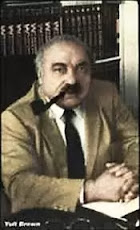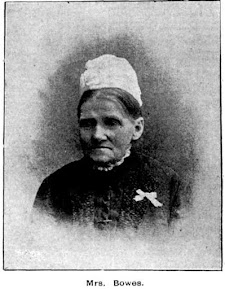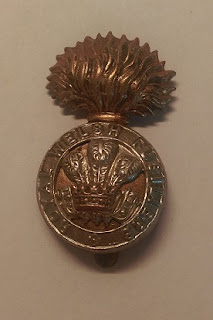Water as fuel for vehicles?
With all the talk of
electric cars and other forms of renewable energy (with resistance to their
introduction by some rather large companies who have other vested interests), I
think it's time to revisit an invention by an immigrant to this country. His
ideas in the 1970's could (and should) have flown.
YULL BROWN – Political prisoner,
refugee and inventor
Yull, or Ilia Valkov, his
real name, was born on the 6th of April 1922 in a small village close to Varna,
Bulgaria. He showed a keen interest in technology from an early age but as a
teenager served in the Bulgarian Navy. Later he moved to Sofia and studied
electrical engineering at Sofia Polytechnic but after the coup on the 9th of September
1944 he was accused of tuning into foreign radio stations, spying on his own
country, declared an "enemy of the State" and was sent to a
concentration camp on Belene in 1948 where he served four years. After that time,
he worked in the mine at the Labor Education Dormitory in Pernik and although
still classified as a prisoner his valuable technological skills were utilised in
the repair of vital equipment.
Ilia was released in 1950
but harassment by Bulgarian secret services did not stop and in 1952 he escaped
from Bulgaria to Turkey passing by the Strandzha mountains and crossing the
Rezovo River. In Turkey, he was convicted as a spy and imprisoned for five
years.
Ilia Valkov/Yull Brown in later years - Forgeiner.bg with grateful thanks
Ilia was released with the
help of the US Army intelligence services and the personal involvement of Major
Brown, whose surname he took with his first name coming from the Jules Verne
book "The Mysterious Island". It was in that book that the germ of an
idea to use water as a combustible became an inspiration to his life's work. He
fled to Australia on a political refugee passport in 1956 and moved to Sydney
in 1958.
Yull as he was then known, studied at the University of Electrical Engineering in Sydney and began working
as an engineer at several large companies in the early 1960's. It was at this
time he was able to commence his experiments into an alternative fuel source.
From the Jules Verne novel mentioned previously and published in 1875, the
author had written “Water decomposed into its primitive elements and decomposed
doubtless by electricity, which then become a powerful and manageable force.”
Most of Yull’s experiments
were conducted with welding torches where he showed that hydrogen and oxygen
could be separated from water and then burned cleanly. The process results in a
gas containing ionic hydrogen and oxygen in proper mixes which could be
generated safely and economically.
Yull applied for a patent of
this “gas” which he named “Brown’s Gas” in 1974. Generally, a mixture of
hydrogen and oxygen, both elements found in water produce a gas which is highly
explosive and usually considered too dangerous to use. Combined in exactly the
same proportion as they are found in water, the gases can be used and stored
together with safety. Hydrogen and oxygen can be separated from water in a
proportion that ensures total combustion of the Brown’s gas and requires no regulators
for the blending process. What’s more, used in an implosive system their
by-product is pure water vapor.
A group of seven businessmen
put up $700,000 in a company called Water Fuel Holdings to finance Yull’s
experiments. He found that his gas could be successfully adapted onto a normal
car engine enabling the car to run on water.
It is the removal of the
carburetor and its replacement by a pressure reducer and throttle valve and a
change to the timing in the engine due to the higher flame speed than in a
normal gasoline/air mixture, that was the key. Making it even more attractive is
that since the only product of combustion is water vapour, leaving no carbon
build up on plugs and valves as well as no corrosion on the exhaust manifold or
muffler, the engine runs cooler and there is nothing but warm steam and NO
pollution.
Yull successfully ran two
vehicles on water. An American oil company attempted to buy out his water fuel
converting technology, but Yull refused to sell them the rights knowing that
once sold, his invention would be shelved in a world, at the time, reliant on
oil.
Not surprisingly after Yull
started to publicise his water engine invention, he became the target of
attempted assassinations, including bullets being fired into his house. Fuel
companies stood to lose consideration amounts of money if his invention became
available particularly in the midst of the oil crisis of the 1970’s. He took to
carrying a handgun to protect him and his family.
Yull Brown spent his life raising considerable money from investors towards commercialising his
product. He founded the company Brown Energy and began producing Browns Gas
generators. He sold the first to China who apparently are still using it to
burn radioactive waste. It is also utilised in that country in welding, water
desalination, medical and toxic waste management amongst other applications.
Browns Gas was tested in the
USA and found to be successful but not taken up. The Chinese Government
reinvited Yull Brown in 1996 to build a Browns Gas system for deployment in
automobiles. This was interrupted in part due to his ill health and Yull
decided to return to Australia for treatment.
Yull Brown died of heart and
kidney failure on the 22nd of May 1998 and was buried in the new
Catholic area not far from the Catholic Office and Sacred Heart Chapel. The
monument depicts him holding a large water drop and a fitting reminder of his life’s
work.
What a remarkable man and
how frustrating it must have been for him to be hunted for an invention that
could have (and maybe still can) make for a cleaner environment. His invention
unfortunately came about in a time when petroleum was the only fuel considered for use by all those who occupied the planet. Perhaps if he had produced his inventions 25 years later in the late 1990’s or early
2000’s he might have received the recognition that should rightly have been his.
For today’s references I
have utilised Foreigner.bg – A Bulgarian website for Expats and people wanting
information about Bulgaria and a special article written recently by Daniel
Montiglio which proved invaluable; The Individual July 15, 201; aquergy.com and
many varied Google searches found under Yull Brown and Browns Gas.
This blog is not politically
based but aims solely to highlight yet another remarkable person who calls
Rookwood “home”.
If you have any further
insights into Yull Brown or Browns Gas, please feel free to add them to the
comments area or add them the blog at the Group Facebook page under
rookwoodcemeterydiscoveries
Or send me a personal
message at
lorainepunch@gmail.com







That’s was so interesting thank you
ReplyDeleteWhat a genius - so far ahead of his time!
Delete